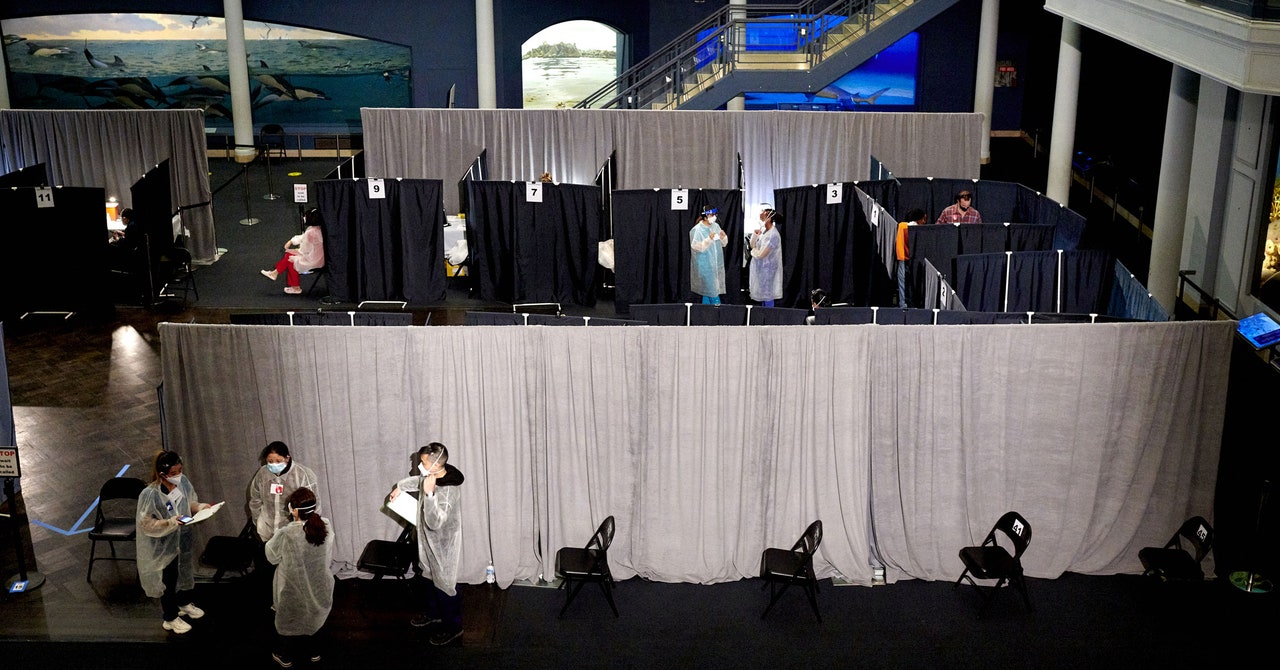
Vaccinating children spurs controversy, the Delta variant fuels a global surge, and drugmakers and countries consider boosters. Here’s what you should know:
Want to receive this weekly roundup and other coronavirus news? Sign up here!
Headlines
Vaccinating kids is poised to be the next politicized pandemic issue in the US
This week, Tennessee fired its top vaccine official for notifying health care providers of a long-standing legal mechanism that allows minors over 14 to be vaccinated without parental consent. The state has also stopped all online vaccination outreach to teens. This news, coupled with the CDC’s recent relaxation of guidelines for wearing masks inside school buildings, could well be an omen of the next big Covid controversy: vaccinating children. Clinical trials testing mRNA vaccines for kids are well underway, and first requests for emergency authorization are expected in September or October. But if they’re approved, shots for kids seem likely to become a political battleground rife with misinformation.
On Thursday, US surgeon general Vivek Murthy called misinformation about Covid-19 and vaccines more generally a pressing national concern, especially as vaccination rates have slowed and cases are once again on the rise. He called on tech companies in particular to make changes to their platforms to stop the spread of unfounded or inaccurate claims about the pandemic.
The Delta variant continues to spur a surge in cases around the world and in the US
Global outbreaks are worsening as the Delta variant continues to spread rapidly. The WHO reported that deaths in Africa rose by 43 percent in the last week, South Korea has tightened restrictions as it battles its worst outbreak yet, and Covid wards are overflowing in Indonesia, the world’s fourth-most-populous country. The surge is particularly bad in countries with lower vaccination rates, but fortunately some vaccine sharing efforts seem to be picking up speed. Late this week, for instance, Indonesia received 1.5 million doses of the Moderna vaccine following 3 million other American doses that arrived last weekend.
Delta is now also the dominant strain in the US, and case counts are going up in every state. In response to this surge, Los Angeles reinstated its indoor mask mandate for everyone—vaccinated or not.
Some countries weigh offering booster shots despite calls to prioritize first doses
Israel has started offering a third booster dose of the Pfizer-BioNTech vaccine to immunocompromised adults after the Delta variant sent case rates up again, even among people who have already been vaccinated. The country’s health minister said the decision on whether to make boosters more widely available is pending. Pfizer has been pitching boosters in the US as well, but senior US officials told the drugmaker that they would need more data on the efficacy of a third dose before approving it for use. Even so, a federal advisory panel is expected to meet next week to weigh the possibility of giving additional doses to patients with suppressed immunity.
On the flip side, WHO officials have called on drugmakers to prioritize supplying vaccines to countries where many still have not received their first doses rather than urging rich countries to offer boosters. They added that at this point there isn’t sufficient scientific evidence that booster shots are necessary.
Daily Distraction
Why didn’t WeWork work? A new book charts the coworking startup’s downfall.
Something to Read
In the 15 years since its launch, Twitter has become home to infinite, intertwined conversations and communities. In the first of a three-part series, WIRED’s Jason Parham chronicles how Black users created a cultural juggernaut on the platform. “It is both news and analysis, call and response, judge and jury—a comedy showcase, therapy session, and family cookout all in one,” he writes. “Black Twitter is a multiverse, simultaneously an archive and an all-seeing lens into the future.”
Sanity Check
These days, the best music streamers rise above the rest because of the new tunes they introduce to listeners. Here are a few of our favorite services for enjoying music old and new.
One Question
How is the airline industry adapting as travel rebounds?
Pre-pandemic, everything from airline ticket pricing to flight schedules was determined with complex mathematical models based on a wealth of historical data. Now, more people are boarding planes once again, but travelers are following new, unpredictable patterns that the industry’s preexisting models can’t accommodate as easily. In response, many airlines are relying less on algorithms and more on human scheduling and pricing teams. They’re also testing other data sources, like customers’ web searches, to figure out what’s in demand, and targeting specific fares to specific people based on their history and the market. Still, there’s a lot of trial and error, and it could be a while before these companies can make sense of the new numbers.
More Great WIRED Stories


